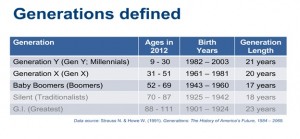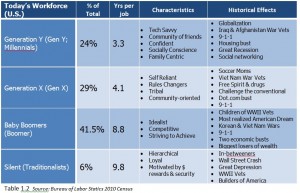Published on
Our First Learning Experiences

Most of us can recall our very first learning experience, good or bad. For me it was the experience of crossing the street in front of my childhood home in an attempt to get to the swings in the public park just across that street. Half way across that street I froze in my tracks as I heard the screech of brakes and the honking of the auto‘s horn. As I turned to my left a goliath of a grill on a ‘37 Chevy behind a rather intimidating chrome bumper was speeding toward me and stopped within inches of hitting me. I was so scared I literally wet my pants. I couldn’t move, cry or flinch. I was frozen to that spot until my hysterical mother retrieved me. I didn’t understand why she and the driver of the auto were screaming and yelling. I wasn’t hurt. Scared yes, but not hurt. Within minutes all I wanted to do is get to that swing in park across the street.
Did I learn to not run into the street as my mother and father had tried to tell verbally and explained the possible consequences of being run over by a car? Yes. I learned because I could not visualize the consequences they related until I actually came face to face with those consequences. More importantly, as I learned with repeated incidences throughout life, there are often unintended consequences for our conscience decisions and actions, no matter how we learn. I also know formal learning practices rarely rendered that perspective for us as we processed through our formal educational system.
Until recently, when we completed our formal education, wherever that meant, we more often continued learning by trial and error, being coached or corrected on the job. Until the spread of mainframe computing, we mostly learned by show and tell on the job. Sometimes the teacher or mentor would relate the “downside” on the topic, but likely only if it were a hazardous role with safety compliance regulations. Some took advantage of every opportunity to learn and grow regardless of the amount of formal education. Many fell right into the groove — work hard to work your way up. The success of Bill Gates and Steve Jobs, among many, sparked hope for those who were also drop outs from formal learning processes, but knew they were capable of learning or creating – given the opportunity.
To a great extent our first learning experience, and to a greater degree, our acceptance of learning beyond what is known as formal educations will differ depending on when and where we were born. Research tells us a dedicated work ethic and innate curiosity are central to the learning process. Early pioneers and immigrants with these characteristics could apply their knowhow in a free and open society our founders of the Republic provided. Bill Gates and Steve Jobs are benefactors of that environment and entrepreneurial spirit. Both subscribed to a lifetime of learning beyond any enablement the formal processes would have provided.
More recently, the environment surrounding us as we grew up in a generational timeline changed our life and formal learning context and experiences. These generational populations broken into segments or cohorts (“Generations defined” below) have been labeled for purposes of demographic and behavior analysis.
Other than academies or recertification occupations (doctors, nurses, pilots, etc.) each generations environment has had a strong influence when formal learning ends to mean “when I get my diploma” (high school, undergraduate, certification, MBA). Many historical events shown below in Table 1.2 factor into belief that continuous learning is necessary and will produce better success and life experiences.
Of course the G.I. Bill provided college educations for many returning Vets from WWII that increased not only enrollments in more formal education, but passed along attitudes to Baby Boomers driving up college enrollments for three decades. However, post high school and college formal education was not seen as necessary by families who had no prior college grads in the family tree. By then, after 10 to 18 years of classrooms, one could accept they had learned all that was needed formally to be successful. Once again, Bill Gates, Steve Jobs and others proved formal education was not necessary for them to be hugely successful.
This is the first part of Mike Hammer’s series, entitled Why Lifelong Learning? A Shift in Thinking About Life and Work. Check back next week for part 2, The Age of Knowledge Workers.
Author Perspective: Business





